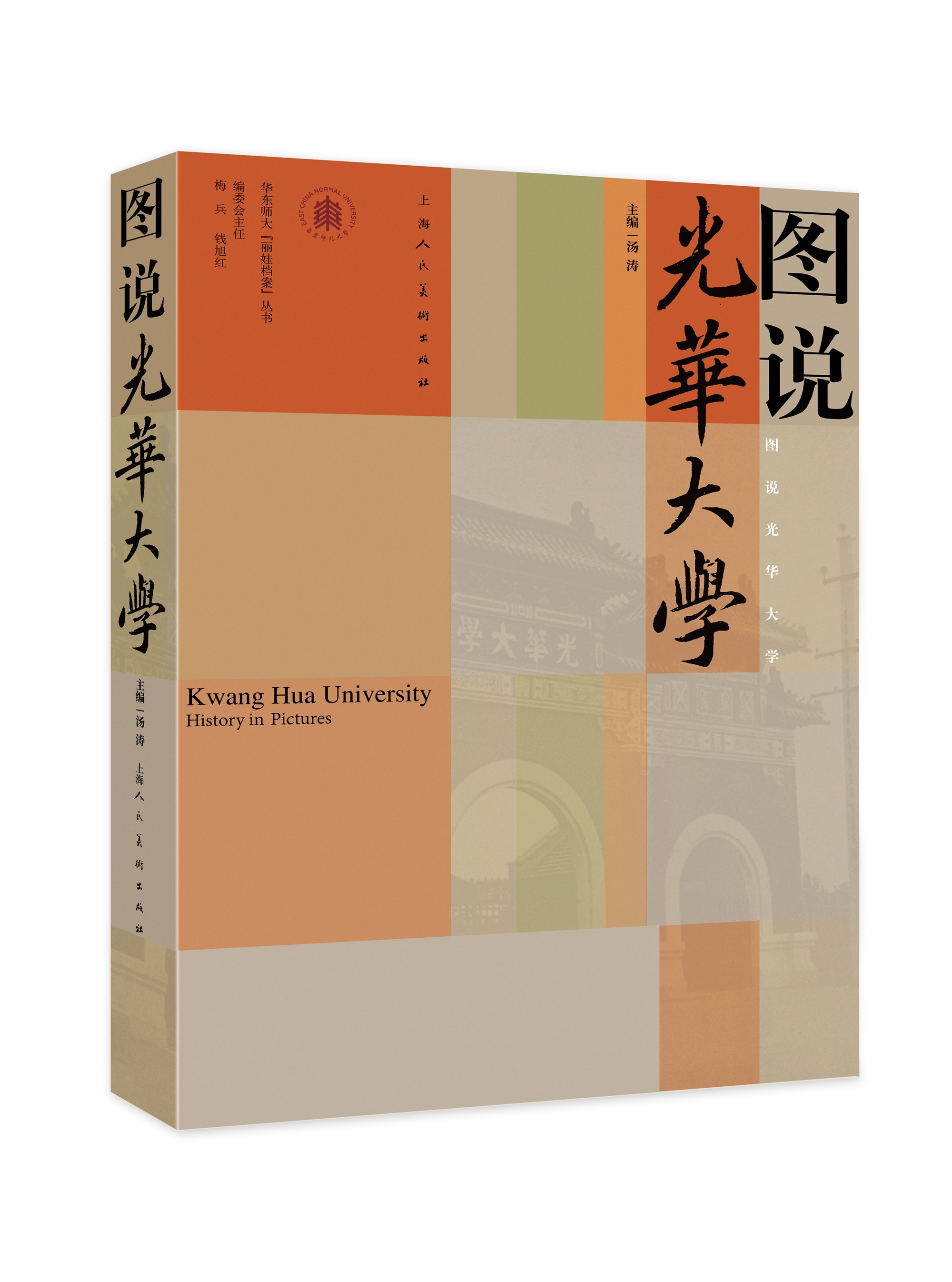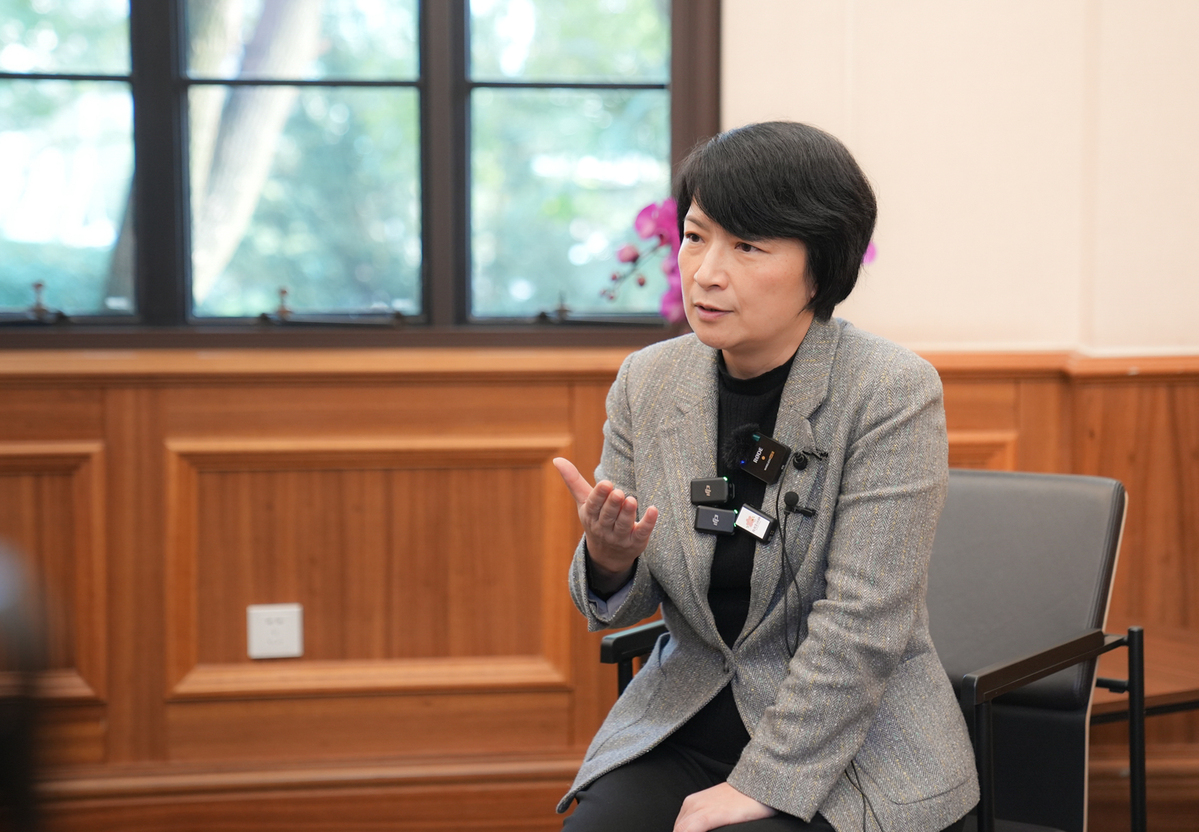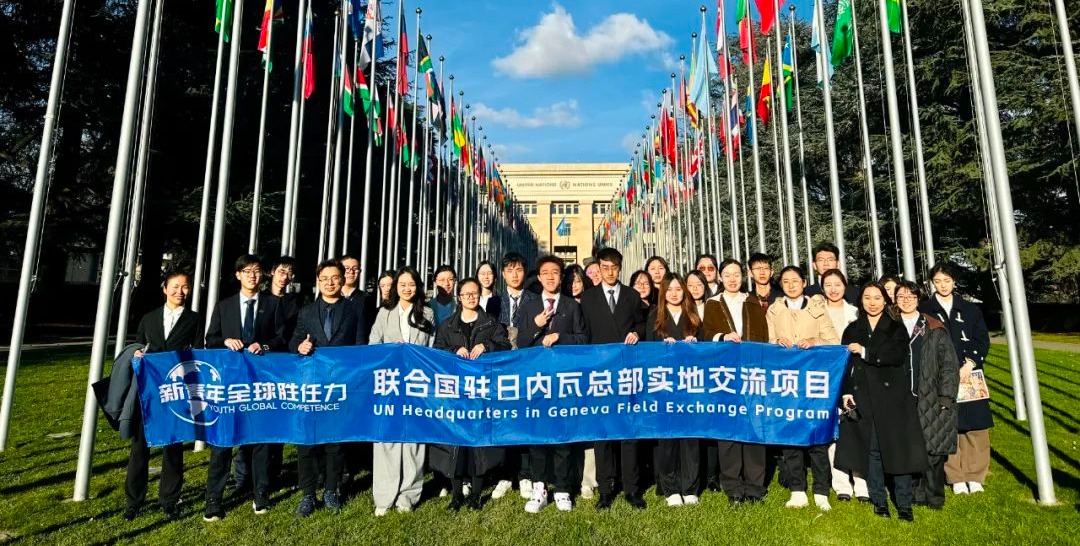ON July 2nd, Prof. Liu Mingyao and Prof. Du Bing and their team members published their article “Inhibition of Rspo-Lgr4 facilitates checkpoint blockade therapy by switching macrophage polarization” in the international academic journal Cancer Research. ECNU's postdoctoral researcher Tan Binghe was the primary author and Liu Mingyao and Du Bing worked as co-corresponding authors.
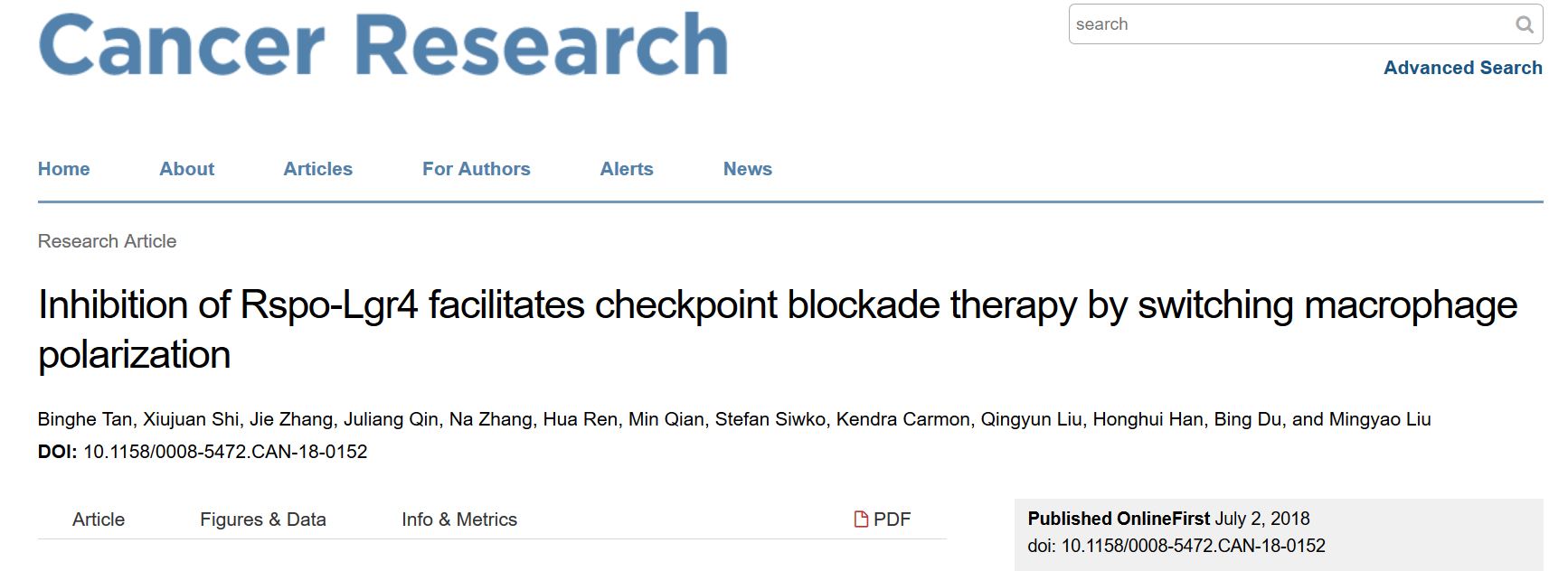 The research results are published in Cancer Research online journal.
The research results are published in Cancer Research online journal.
According to the article, a potential amount of cancer patients receiving therapy for a subset of treatments for immune checkpoints have shown great clinical results but may be hampered by a failure to reverse the immunosuppressive tumor microenvironment (TME).
The team of research scientists also discovered new features of TME that play a significant part in its processes of development, such as tumor-associated macrophages (TAM) and the leucine-rich repeat-containing G-protein-coupled receptor 4 (Lgr4, also known as Gpr48).
TAM contains the most abundant immune cells in TME with its non-redundant roles in the mechanisms of restricting anti-tumor immunity. Lgr4 has been associated with multiple physiological and pathological functions, and its ligands R-spondin 1-4, which have been shown to promote the growth and metastasis of tumor cells. However, whether Lgr4 can promote tumor progression by regulating the function of immune cells in the microenvironment remains largely unknown to the scientists .Liu Mingyao and Du Bing demonstrated that Lgr4 promotes the polarization of macrophage M2 substances through signals produced by the Rspo/Lgr4/Erk/Stat3.
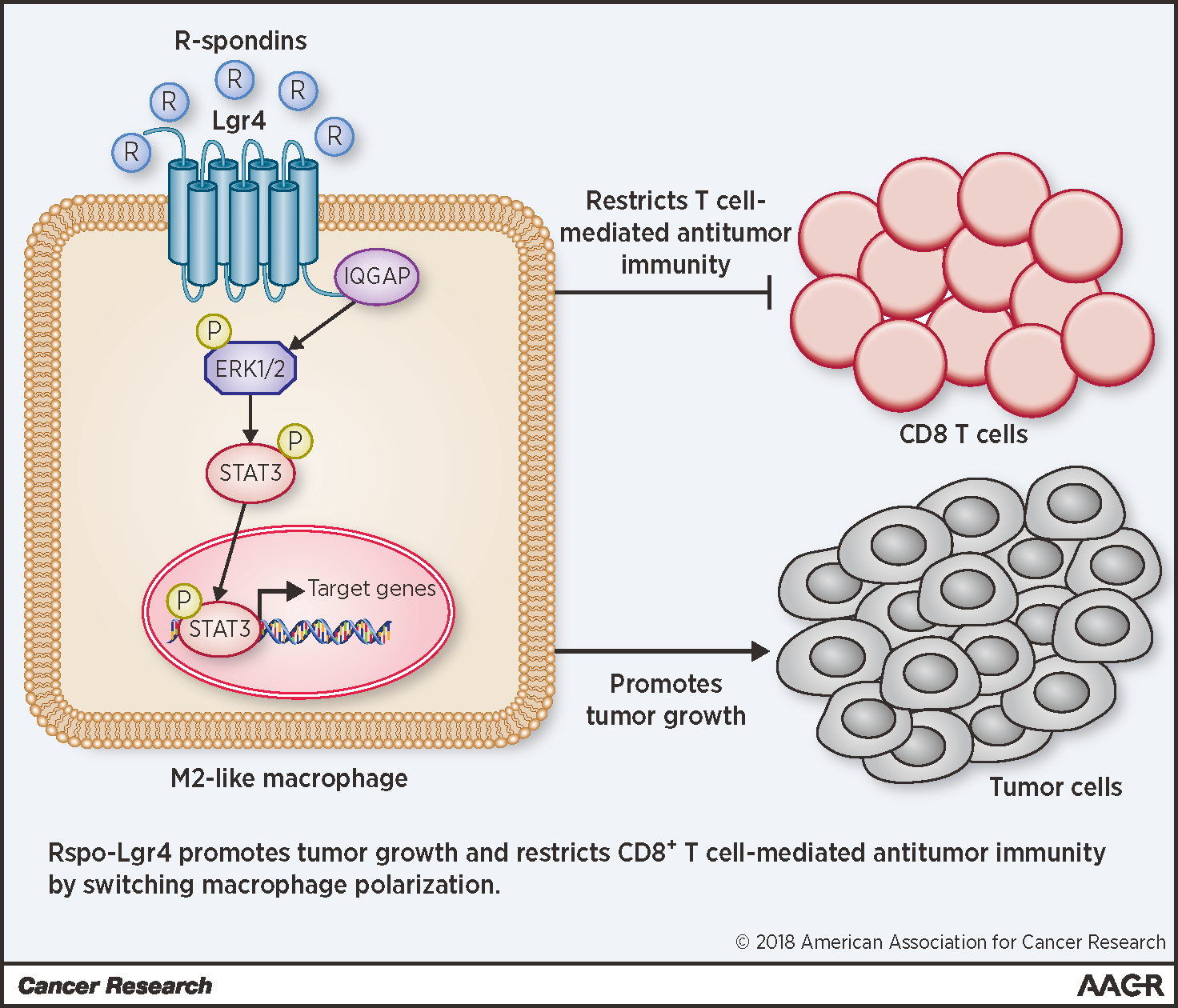
Lgr4 promotes the polarization of macrophage M2 substances through signals produced by the Rspo/Lgr4/Erk/Stat3.
In the experiment whereby they used lab mice consumed with Lgr4fl/flLyz2cre/+, to test for urethane-induced lung carcinogenesis, Lewis Lung carcinoma (LLC,) and B16F10 melanoma tumors were all markedly reduced and thus characterized by fewer protumoral M2 TAM and increased CD8+ T lymphocyte infiltration in the TME.
Furthermore, LLC tumor growth was notably reduced when Rspo/Lgr4/Erk/Stat3 signaling was blocked with either the LGR4 extracellular domain or an anti-Rspo1 antibody.
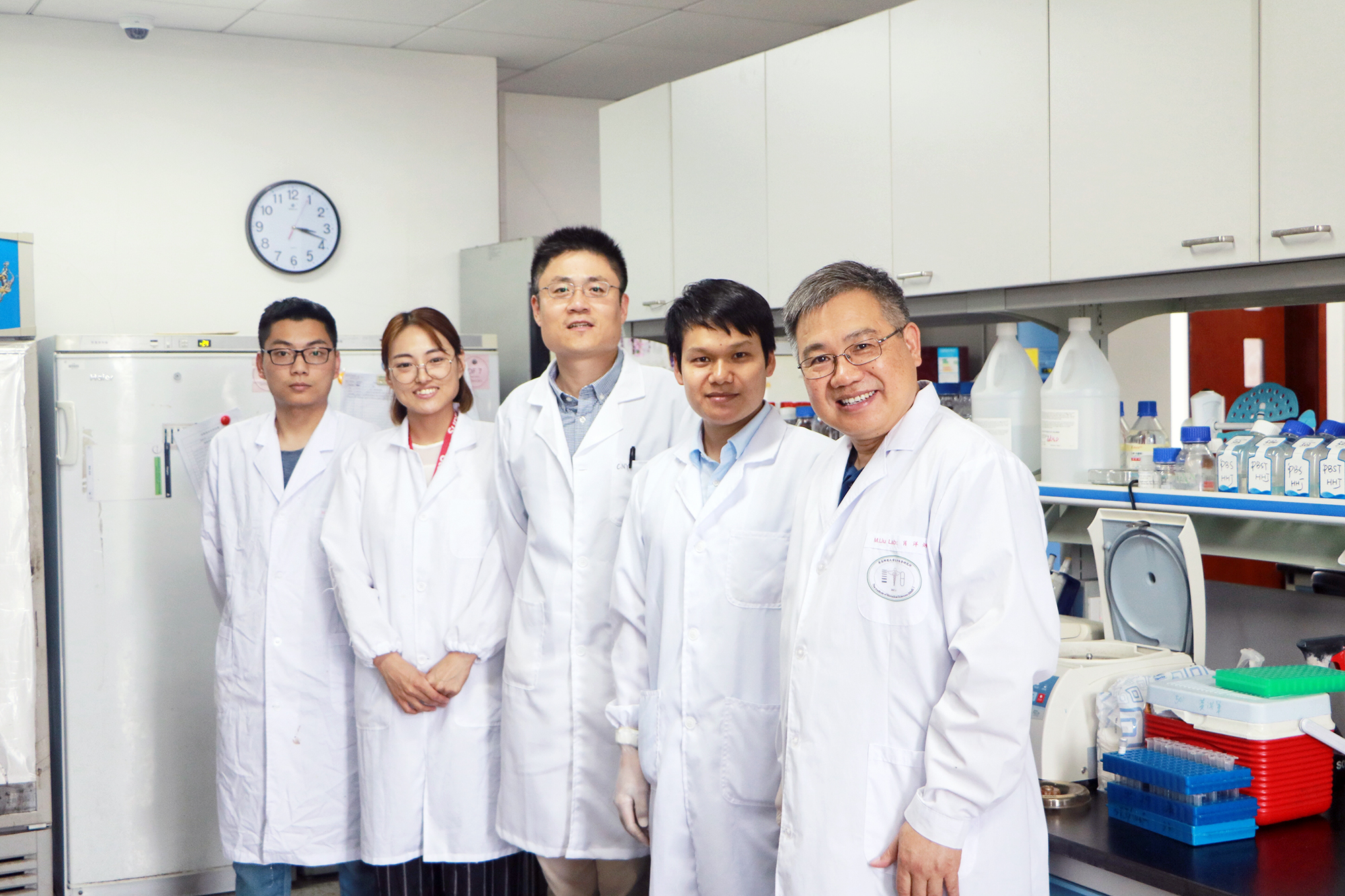 Prof. Liu Mingyao and Prof. Du Bing and their team members
Prof. Liu Mingyao and Prof. Du Bing and their team members
It was also significant from the experiment that when Rspo-Lgr4 signaling was blocked - indicating vital roles of Rspo-Lgr4 in host anti-tumor immunity and a potential therapeutic target in cancer immunotherapy - it effectively overcame LLC resistance to anti-PD-1 therapy and improved the efficacy of PD-1 immunotherapy against B16F10 melanoma.
Based on the results of this study, the tumor immunotherapy strategy have already applied for many national invention patents. At present, the team members are actively engaging in facilitating the basic and clinical transformation research of tumor immunotherapy.
Find out more: Inhibition of Rspo-Lgr4 facilitates checkpoint blockade therapy by switching macrophage polarization
Edited by Linlan Zhang Proofread by Mayfield Joshua Reviewed by Wenjun Guo Jinyu Liu


